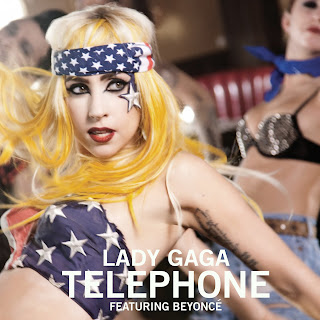I don’t like pop music. I think that’s pretty well established at this point. However, pop music has one thing going for it: you can dance to it with your friends. In the words of the Nostalgia Chick, “Pop music is the lowest common denominator.” It’s designed to have a very broad appeal, to use whatever passing trends are popular. Maybe Vocaloid songs will one day have that kind of reach. I don’t know, and I’m not going to make unsubstantiated predictions. What I do know is this: the user-generated format means that there will always be room for both popular and niche genres.
By niche, I mean things like narrative songs, techno, electro, and whatever the heck you call the song below.
Because Vocaloid music is user-generated, they can target any audience they want. All it requires is someone with a song in mind and the courage to try making it. This means that the difference between fan and contributor is negligible. Anyone can make a Vocaloid song, theoretically speaking. The songs they make may suck, but it is very possible.
With such a large source of potential contributors, there is plenty of room for niche genres. Unlike financially-backed productions, an artist doesn’t have to worry about target audience or marketing (granted, it wouldn’t hurt). The target audience will find them.
Right now, Vocaloids are still fairly young, making them a niche genre all on their own. However, as the fandom continues to grow, sub-communities will form. So for now, maybe the only pace you can meet to talk about Vocaloids is VocaloidOtaku or the Vocaloid club on deviantart. However, as the fan base grows, it will splinter and subdivide into more specialized groups focusing on a particular interest. For example, all sci-fi was once lumped into one hazy genre, but nowadays you have subgenres like space opera, post-apocalyptic, steam punk, etc. A person might like Gattaca but hate Star Wars. While some people bemoan a fanbase splintering, it actually streamlines finding people with similar interests. If you know exactly what you like, and have a name for it, then you can find it easier.
 |
| Yes, these are both sci-fi. No, they have nothing in common. |
While Vocaloid hasn’t reached that critical mass yet, it’s only a matter of time. Mainstream music takes decades to evolve, slowly reacting to new technology and listener tastes, but user-generated songs can change from day-to-day. They define themselves, so they don’t need to adhere to the conventions of a genre. All they have to do is think of a name for what they’re doing, and if people like it, then similar stuff appears. That’s what user-generated content ultimately means: constantly branching out while still leaving room for everyone’s tastes. So if there isn’t Vocaloid music you like yet, give it time. There will be.
This concludes my five part series “In Defense of Vocaloids.” If you like what you heard, check out the Vocaloid music page for more music suggestions. Do you have a suggestion for music I should ad to the page? Let me know! And no, I’m not done talking about Vocaloid, though that isn’t going to be the only focus of this blog. Thanks for reading, and stay tuned for more nerd analysis!

















